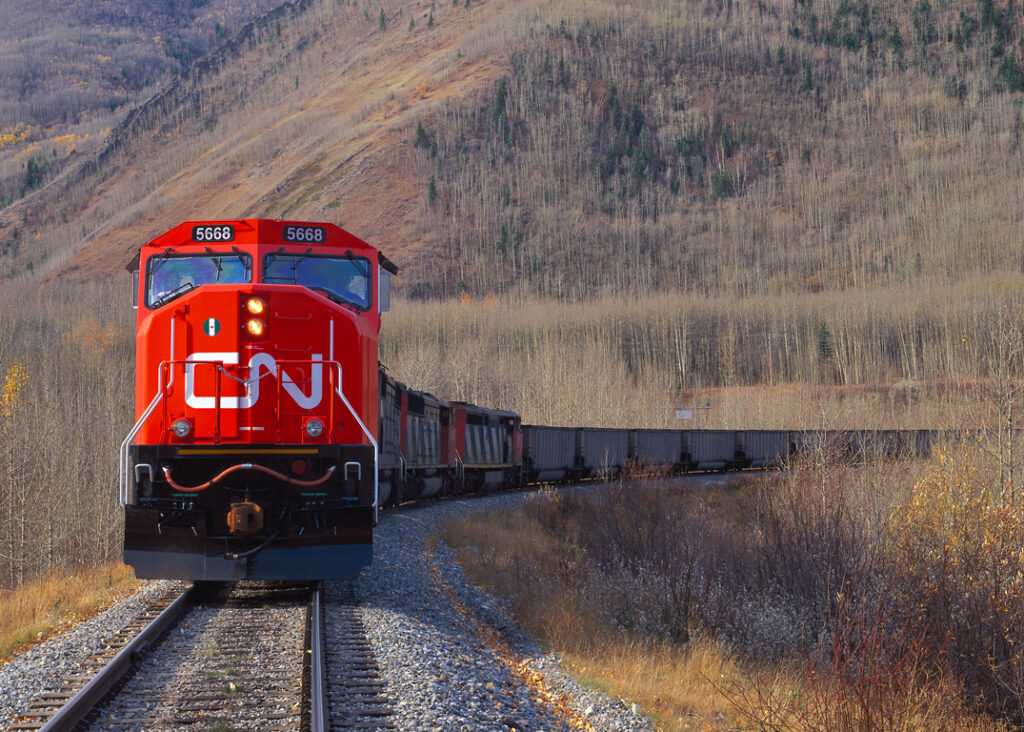All about the community of model railroading and rail enthusiasm
August 19, 2024 / Updated August 22, 2024
UPDATED: Aug. 22, 2024 – Canadian National and Canadian Pacific Kansas City moved forward in the early morning hours today by locking out employees represented by the Teamsters Canada Rail Conference. Both railroads said they would continue shutting down their networks.
Posted Aug. 19, 2024
Canadian railroads have begun the phased shutdown of operations in anticipation of a lockout Thursday over a labor dispute.
Canadian National Railway and Canadian Pacific Kansas City notified the Teamsters Canada Rail Conference of their intention to lock out TCRC-represented locomotive engineers, conductors and dispatchers.
As is normal leading up to a planned work stoppage, the railroads began embargoing all toxic by inhalation (TIH) dangerous goods traffic to allow existing traffic to safely exit the rail network. Also, shipments of some perishable products have been halted.

CN reportedly is barring container imports from U.S. railroads. According to Automotive Logistics, Maersk, a massive container shipping company, has halted further acceptance of Canada-bound shipments that require movement by rail.
“Unless there is an immediate and definite resolution to the labor conflict, CN will have no choice but to continue the phased and progressive shutdown of its network, which would culminate in a lockout,” CN said in a statement.
CN said any product coming to, leaving or moving within Canada via rail will not be transported during a work stoppage. Train movements will be limited to yards, “as there are not enough certified management train crews to ensure intercity train movements.”
The lockout would follow the end of a 13-day extension of the cooling off period ordered by the Canadian Industrial Relations Board. CIRB instituted the extension earlier this month so that both sides potentially could reach an agreement.
Railroad and union leaders reported that no meaningful progress in negotiations was made over the weekend. At issue since the contract expired in November are improved safety, wages and work/life balance.
TCRC and the railroads said they hope they can still reach a deal before Thursday’s deadline.
CPKC said it is committed to avoiding a work stoppage but that lacking an agreement it will conditionally withdraw its offer for a modernized, time-based collective deal.
“That time-based agreement proposal was intended to address the union’s concerns related to work and time off scheduling while allowing significant wage increases and additional customer service flexibilities,” CPKC said on its website.
Instead, the company will focus on a “status quo-style contract renewal covering three years with competitive wage increases that are consistent with recent settlements with other railway unions and maintains the status quo for all work rules.”
In June, TCRC voted to authorize strikes at CPKC and CN. The union represents about 6,000 CN workers and 3,300 CPKC workers. It also represents CPKC’s rail traffic controllers.
“Our members at both carriers simply want a fair and equitable collective agreement – one that does not compromise their quality of life or their safety,” TCRC president Paul Boucher said on the union’s website. “Both CN and CPKC are standing in the way of that.”
The railroads have vigorously challenged TCRC’s claim that their offers jeopardize safety. CPKC said the status quo for work rules “fully complies with new regulatory requirements for rest and does not in any way compromise safety.”
CN has offered to increase locomotive engineer pay to $75 per hour and conductor pay to $65 an hour, as well as guarantee job security and earnings for employees. TCRC rejected that offer and two others, according to CN.
Last year CN’s conductors earned approximately $121,000 and its engineers $150,000, both figures excluding pension and medical benefits.
CN and CPKC are the largest railroads on the Canadian freight rail network. Canadian railways transported half of the country’s exports in 2022 and more than $380 billion worth of goods, according to the latest data from the Railway Association of Canada.